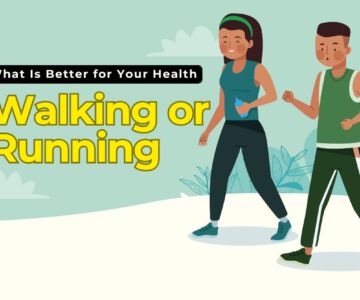 7 Ways to Grow Your Successful Businessby admin / July 27, 2022
7 Ways to Grow Your Successful Businessby admin / July 27, 2022What are the Symptoms of Body Dehydration?
What is Body Dehydration?
Your body becomes dehydrated because it lacks the water and other fluids it requires to function normally when you use or lose more fluid than you take in. Dehydration will occur if lost fluids are not replaced. Dehydration can affect everyone, but it is particularly dangerous for small children and elderly people.
Causes of dehydration
Dehydration in young children is most frequently brought on by severe diarrhoea and vomiting. Older people naturally have less water in their systems, and they may have diseases or take medications that make them more susceptible to becoming dehydrated. This means that even relatively small ailments, such as lung or bladder infections, can cause elderly people to become dehydrated. If you don’t drink enough water in hot weather, especially if you are moving hard, dehydration can occur in people of any age. More fluids can usually help you recover from mild to moderate dehydration, but severe dehydration requires rapid medical attention.
Every day, your body loses water by breathing, sweating, peeing, pooping, as well as tears and saliva (spit). Typically, you restore the lost liquid by consuming liquids and foods that are high in water content. Dehydration can occur if you lose too much water or if you don’t consume enough food and liquids.
Water loss may be greater during:
- Flu
- Diarrhoea
- Vomiting
- Excessive perspiration
- Urinating a lot (Diabetes and some medications like water pills — also called diuretics — can make you pee more often.)
You might consume the water you use due to
- Being busy causes you to forget to drink enough.
- You’re not aware that you’re thirsty.
- You’re sick to your stomach, have a sore throat, mouth sores, or you just don’t feel like drinking.
How does dehydration develop?
Sweating:
Your body naturally cools itself through sweating. Your sweat glands begin to produce moisture when you start to feel warm in an effort to cool down your body. This operates by evaporation. A modest amount of heat is lost when each sweat drop evaporates off your skin. Your body cools you off more as a result of increased evaporation caused by increased sweat production. Additionally to hydrating your skin, sweating keeps the electrolyte balance in your body in check. Most of the liquid you sweat is made up of salt and water. Dehydration can result from excessive perspiration because you lose a lot of water. The medical term for profuse perspiration is hyperhidrosis.
Illness:
Continuously vomiting or having diarrhoea-causing illnesses can lead to severe dehydration. This is because vomiting and diarrhoea can result in the body releasing an excessive amount of water. These processes also result in the loss of essential electrolytes. The body uses electrolytes, which are minerals, to regulate the functions of the organs, the blood chemistry, and the muscles. Blood, urine, and other bodily fluids contain these electrolytes. These processes can be hampered by vomiting or diarrhoea, which can also result in serious side effects like stroke and coma.
Fever:
When you have a fever, your body attempts to reduce your body temperature by losing fluid through the surface of your skin. When you have a fever, you may sweat so much that you risk becoming dehydrated if you don’t replenish your fluids.
Urination:
The body often expels toxins from the body through urinating. Chemical imbalances brought on by several situations can increase the amount of urine you produce. Dehydration can occur if you don’t replenish the fluids lost through frequent urine.
Read Here: Why Personal Hygiene Is Important In The Food Industry?
Signs of Dehydration:
Depending on how severe the dehydration is, there are different signs and symptoms. Before a person becomes completely dehydrated, dehydration symptoms may start to show.
Dehydration that is mild to moderate has the following dehydration symptoms:
- fatigue
- increased thirst
- dry mouth
- decreased urination
- dry skin
- less tear production
- constipation
- light headedness
- dizziness
- headache
In addition to the signs of mild dehydration, the following are side effects of dehydration:
- excessive thirst
- low blood pressure
- lack of sweat production
- rapid heart rate
- sunken eyes
- rapid breathing
- shrivelled skin
- dark urine
A medical emergency is a severe dehydration. If you exhibit any of these symptoms, get emergency medical attention.
Rehydration – Treatment for Dehydration:
For certain people, such as those who have severe diarrhoea or vomiting, rehydrating through drinking may not be possible. Fluids can be administered intravenously in this situation. To do this, a small IV tube is inserted into a vein in the hand or arm. It offers a solution, which is frequently a combination of water and electrolytes. For individuals who can drink, it may be advised to combine water with an electrolyte-containing rehydration beverage, such as a low-sugar sports or electrolyte drink.
FAQs
1. How long does it take to rehydrate your body?
Mild to moderate dehydration can be solved in less than a day while severe dehydration can take 2 to 3 days to resolve.
2. How can I recover from extreme dehydration?
You can consume plenty of water, fruit juice, salty soups, rehydration solution etc.
3. What are the Symptoms of Dehydration?
Feeling dizzy, light headedness, dry mouth, eyes, & lips, peeing little, etc are the symptoms of dehydration.



